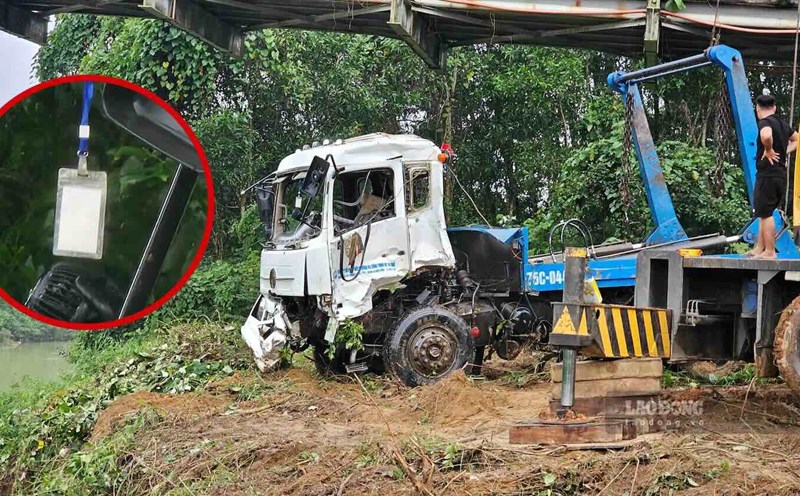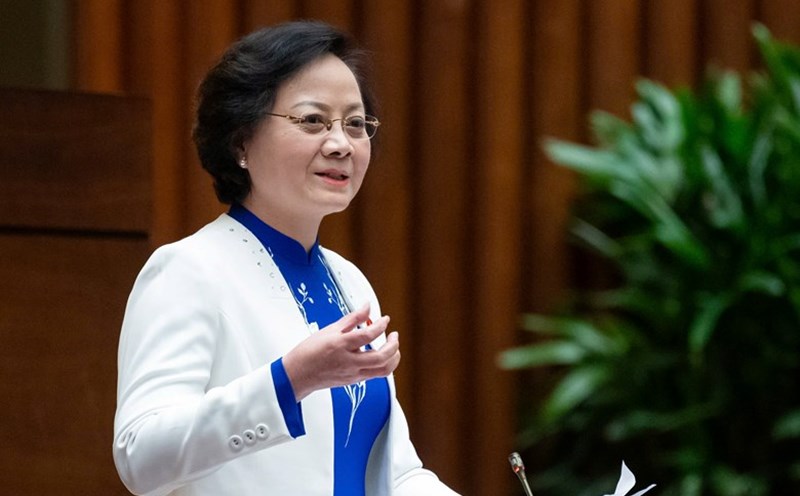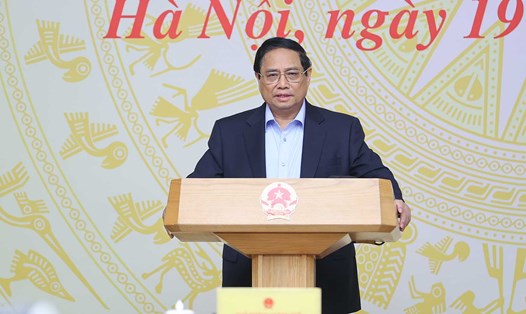Digital economy target will contribute 30% of GDP
Vietnam aims to have the digital economy contribute 20% of GDP by 2025 and increase to 30% of GDP by 2030. Accordingly, the proportion of the digital economy in each industry and field will reach at least 10% by 2025 and double by 2030. Among the tasks and solutions to create the foundation for digital transformation, the development of digital infrastructure, ready to meet the explosive demand for connection and data processing, plays an important role for Vietnam.
According to Mr. Tran Minh Tuan - Director of the Department of Digital Economy and Digital Society, Ministry of Information and Communications, in the 2000s, the concept of digital economy focused on the ICT industry, based on the United Nations classification of the information technology industry. Up to now, the digital economy continues to spread to industries and fields.
"According to the Ministry of Information and Communications, by 2023, the digital economy will account for about 16.5% of GDP. Of which, the ICT industry will account for nearly 60%, and the digital economy of industries/sectors will account for more than 40%. According to assessments by international organizations, Vietnam's digital economic growth rate is high, about 20%/year, equivalent to 3 times the GDP growth rate. In particular, with e-commerce, the growth rate is very fast, ranking first in the ASEAN region. The absorption of Vietnamese people in digital economic fields is increasing and is moving towards the Top 3 in the ASEAN region in digital economy" - Mr. Tran Minh Tuan said.
Mr. Hoang Viet Tien - Deputy General Secretary, Vietnam Digital Communications Association said that Vietnam Internet has gone through many stages of development, digital transformation, digital economy, digital market, especially the development of AI in the next few years will be like a storm. Therefore, we need a foundation, especially solutions to support the development of digital infrastructure.
“Recently, we are eliminating the 2G network, moving towards 5G. The Ministry of Information and Communications has licensed 3 network operators to deploy 5G, and initial testing has had certain successes. In the coming period, to successfully deploy digital transformation and digital infrastructure, solution and infrastructure providers need to come up with user-friendly solutions. For state management agencies, it is necessary to issue specific and appropriate decrees, circulars and instructions. The Ministry of Information and Communications has launched October 10 as the national digital transformation day. Big problems cannot be solved immediately but must be implemented step by step, in a way that is suitable for the market and each stakeholder,” Mr. Tien affirmed.

Many "big guys" want to cooperate to develop 5G and AI in Vietnam
According to Ericsson Vietnam's estimates, 5G will account for about 50% of Vietnam's mobile subscribers by 2029. Currently, more than 25% of data traffic is transmitted via 5G.
Ms. Rita Mokbel - President of Ericsson Vietnam - said that with global experience and leading position in 5G network deployment, Ericsson is always ready to support the commercialization of 5G in Vietnam. Currently, Ericsson is working closely with domestic network operators and enterprises to develop application cases suitable for the specific needs of Vietnam.
As a cloud computing service provider, Mr. Eric Yeo - General Director of AWS Vietnam wishes to cooperate with Vietnamese telecommunications operators to provide technology, expertise and experience in building infrastructure and improving the skills of the workforce, helping telecommunications operators maximize profits from 5G investment.
According to Mr. Nguyen Tuan Huy - Head of Digital Transformation - MobiFone Telecommunications Corporation - the general goal of digital transformation is to increase business efficiency, increase labor productivity, work efficiency and improve service quality for customers. Digital transformation is to optimize (including automating steps) business processes in all operating departments, eliminating work that does not bring value to the business.
“Digital transformation is not simply the use of digital technology in socio-economic activities, but also the process of establishing a new, advanced and modern production method. In which, AI, IOT, Big Data, Cloud, are becoming important production tools in many industries and fields,” said Mr. Nguyen Tuan Huy.







